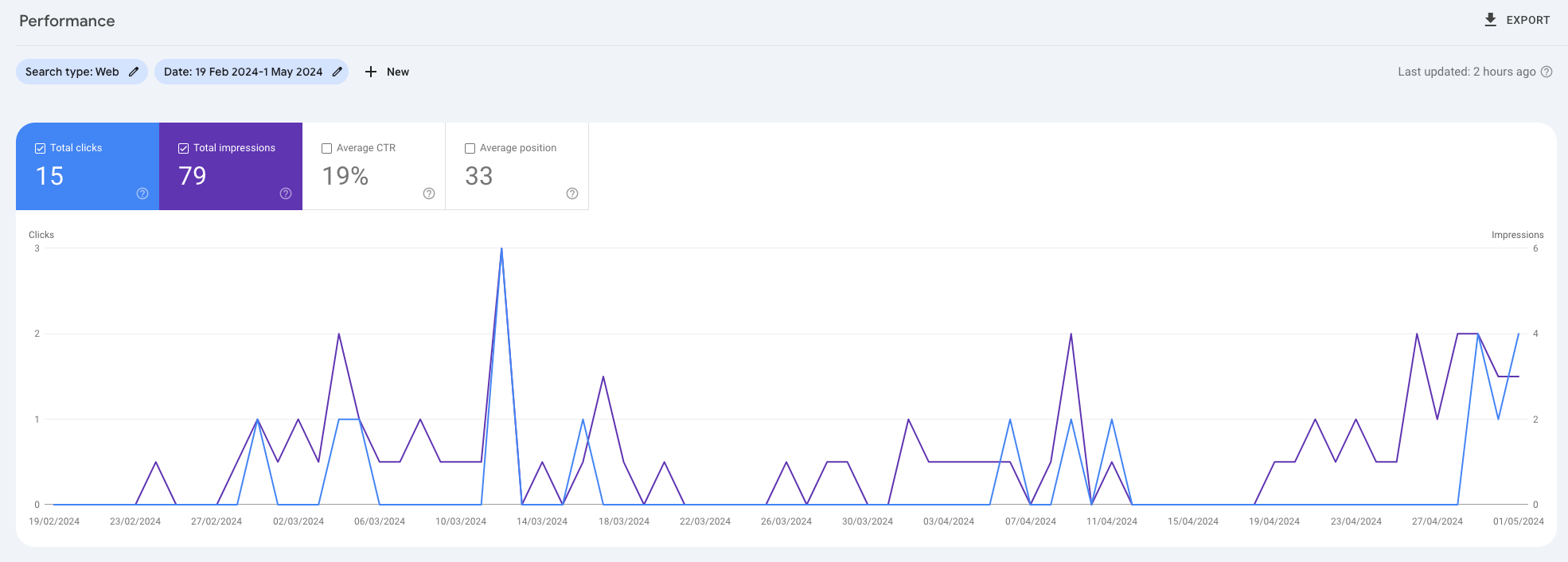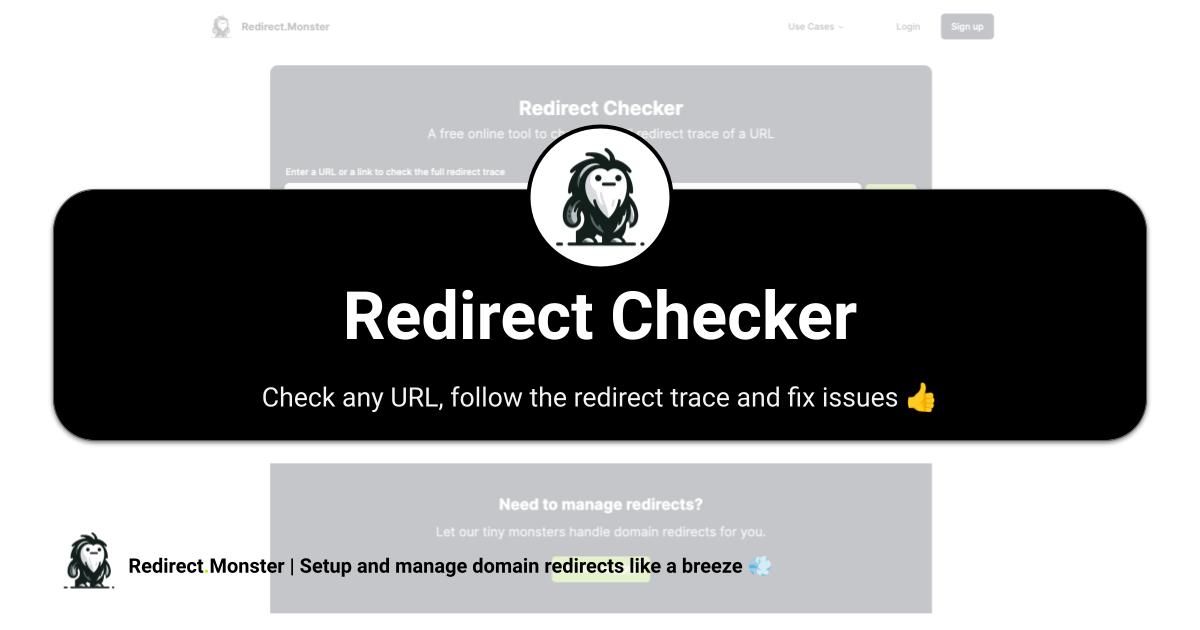Bootstrapping SEO for a micro-SaaS
Sharing learnings about bootstrapping SEO of a micro-SaaS product: don't start with high-volume search terms but rather with niche keywords and free tools.

Earlier this year, I embarked on developing my first micro-SaaS product: redirect.monster. It enables website admins (especially with no technical background) to setup and manage domain redirects, pretty unsexy but this is what makes it interesting. Usually, people don't care about redirects until they need to implement them. So what happens? They google the problem and search for solutions which makes my product a perfect candidate for SEO (search engine optimisation).
Step 1 - Shooting for the stars: Targeting high-volume search terms with GPT-grade blog articles - Failed
With marketing, you need to start somewhere so here is what I did: I created a blog and started writing a few articles targeting high-volume keywords related to my product using ChatGPT for most of the content:



Unsurprisingly, this strategy did not yield significant results.
Step 2 - Boiling the ocean: Search terms clustering and industrial writing - Failed
After looking for 1-2 tips on how to rank, I tumbled over an interview of a SEO expert who explained his approach to automate SEO with a no-code workflow (using n8n and GPT-4):
Automatisation SEO de Dingue grâce à l'IA & N8N (Mieux que Make) 🤯
I followed the approach (in a rather quick and dirty), clustering keywords to end-up with the following blog structure and started writing articles (using ChatGPT as well):
- Redirects
- DNS Management
- Technical SEO
- Troubleshooting
- Best Practices
- How-to Guides
- Use Cases
It seemed to have no significant impact. And after a few dozen of articles, my results on search console were the following:

Step 3: Competing for niches: Targeting low-search keywords
With no improvement in search results, I sought advice from the Build in Public community on X. After a few hours, I got a reply from Ameer Asghar who gave me very valuable hints, which he summarised later in a post:
Are low search volume keywords worth it?
— Ameer Asghar (@AmeerAsghar_) May 7, 2024
The answer is maybe.
Before you think about prioritizing which keywords to target, you should take a look at your Google Search Console performance report.
Because this will help you see which keywords are achievable for your website.… pic.twitter.com/PFqUn2ruS2
Which keywords are achievable for your website
Step 4: Finding something useful that people are proactively searching for - The case for Free Tools
While researching low-search keywords, I noticed several indie hackers recommending building free tools as the best SEO tactics for driving traffic for their website so I decided to try. How did I find free tools ideas? I checked which free tools might be related to my product and guess what? Those free tool were way more searched than my product!
So I ended up building a redirect checker (adding some targeted search-terms in the FAQ of the tool):

And here are the results:

My product started being displayed on Google searches way more often that it was before (12,300 vs 79 over a similar time period). The number of clicks also increased significantly (73 vs 15 over a similar time period).
Since the publication of the tool in May, I did not invested time in Marketing as I'm working on other projects in parallel BUT I continue to get several signups per week (with no efforts).
Takeaways
For future products, I will immediately explore potential free tools as both SEO boost and lead magnet and then compete for low-volume / niche search terms as it seems currently the best technique to get slowly but steadily started with SEO.

